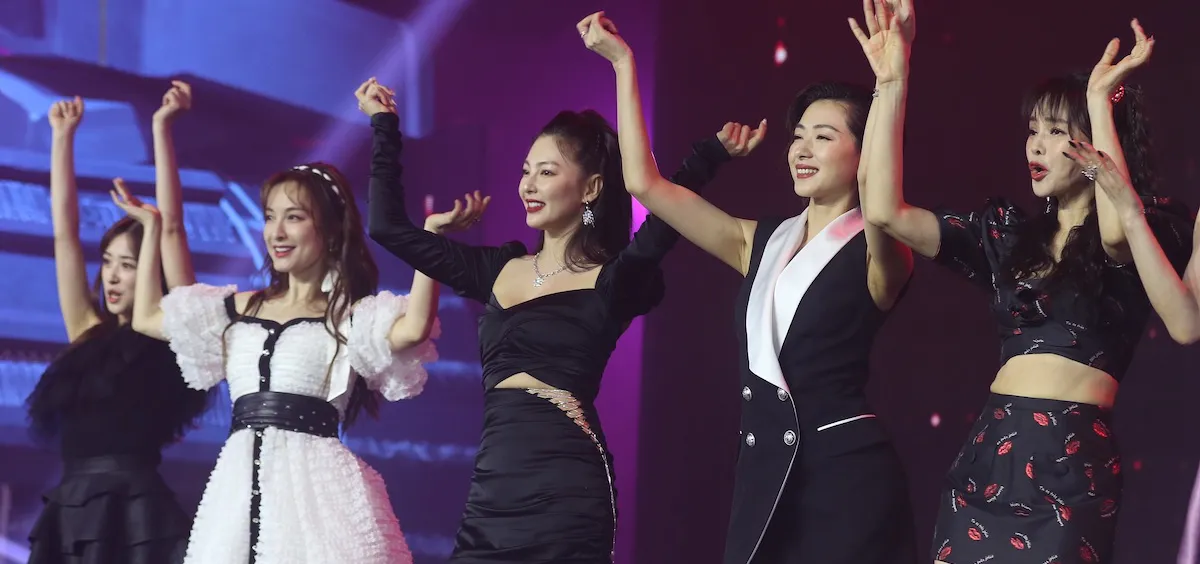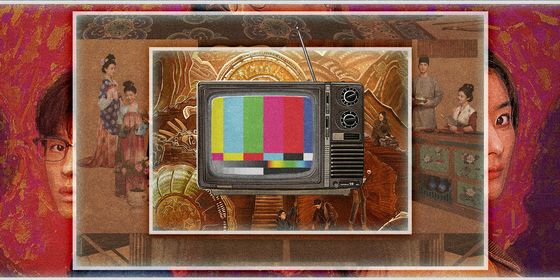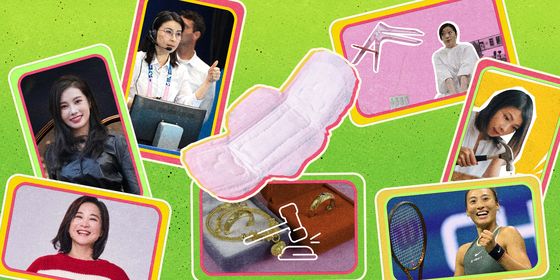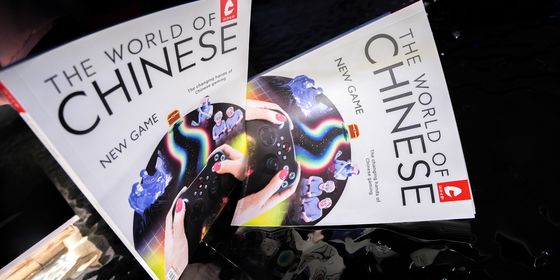Hit talent show featuring ‘older’ women may not be feminist—but viewers are ready to forgive
“We are women, we stand together, and we can help each other,” 38-year-old actress and singer Wan Qian proclaims on Sisters Who Make Waves, a new talent show with a feminist twist that’s taking China by storm.
Wan is one of the 30 female contestants on Mango TV’s hit show, battling to form a band by wowing an all-female panel of judges, three producers, and the public. On the surface, the show is yet another generic idol group reality program, but the contestants in Sisters are different: They are all women over 30, and most are already minor celebrities.
Distinguishing itself from other shows in the genre, Sisters expressly aims to help middle-aged female celebrities gain more exposure, as well as showcase the complexity of mature and powerful women when it comes to fighting societal expectations. But despite the noble aims, the show still struggles to avoid perpetuating female stereotypes and pandering to the male gaze.
The show wanted to deliver the message that age is just a number, and women’s value will not decrease as they get older. However, according to Wu Changchang, an associate professor of journalism at East China Normal University, the female contestants on the show are still presented in the same way as younger contestants on reality TV with, “attractive appearances, svelte figures, dewy skin, unrealistic pep, and extreme self-discipline.”
The contestants themselves feed into this perceived pressure. When talking about age, 50-year-old actress Zhong Liti insists her physical condition will always be at 22 and her “psychological age” will be 18; in another segment, 37-year-old TV show host Wu Xin said she wanted to go back to the time when she was 27 or 28.
“Our youth and our beauty was intrinsic before we reach 30, but after that, I created them all by myself,” Zhang Hanyun, 31-year-old singer-actress proudly declares on the show. After seeing a performance by 39-year-old actress and singer Zheng Xiyi, a viewer commented, “I’m less scared of getting old.”
These types of comments are meant to be empowering, but this forced “age-blindness” actually confirms society’s preexisting notions about aging women, according to fashion critic Tang Shuang. “Though it flies the flag of feminism…[this show] actually reinforces the dilemma of women: Your real age will not be accepted; not by the audience, not by yourself,” Tang Shuang castigated in a blog post on Weibo.
Moreover, “it simply repackages a sense of class superiority,” Tang writes. “It doesn’t encourage women to bravely accept and confront their age, but erases age. Its inspirational effect comes from another latitude of success: ‘If you are rich and successful, you can overcome the curse of aging.'”
The struggle for female performing artists to get work as they age is well-documented in the Chinese entertainment industry. On the show, 25 of the contestants have acting experience, but less than half of them have gotten new roles consistently in the past three years.
According to feminist blogger Guozili, who has more than 111,000 followers on Weibo, male celebrities have also been robbing more and more job opportunities from their female colleagues. Most new reality and talk shows in recent years have been hosted by men, and invite more men than women as guests. In 2019, 24 beauty and skincare brands switched to having male rather than female spokespersons. “Female celebrities are losing, whether it’s their commercial value or popularity, and this trend is also reflected in broader society,” Guozili tells TWOC.
Some contestants have not helped the case by expressing sexist opinions on the show. When asked about the kind of all-female band she wants to form, 48-year-old contestant Ning Jing answered, “One that makes women want to be like them, and men want to marry them.” During an interview on the show, 52-year-old actress and singer Yi Nengjing, said she felt sorry for Anita Mui, one of the most influential Cantopop singers in history, because Mui was unable to “find love.” “If you find your self-worth before you find love, you will become Anita Mui,” Yi lamented.
These regressive ideas that tie women’s self-worth to her marital status and the opinion of men have soured some viewers’ feelings on the show. “The relationship status of female celebrities shouldn’t become gossip for other people,” Guozili said. “What we need are respectful conversations.”
However, though the show does not live up to its feminist branding, many participants have emerged as positive role models for women of all ages. The show is unique in the genre for its portrayal of women with strong personalities, complex characters, and ideas—and in a traditionally shallow and misogynistic TV industry, fans are willing to put up with a lot to get these small improvements.
“No matter how self-deceiving this is, these female celebrities still pose positive examples by speaking up in public about women’s rights,” Guozili declares. “This is a huge breakthrough as they start focusing on issues that women face, and they did a much better job than male celebrities who just want to play safe.”












